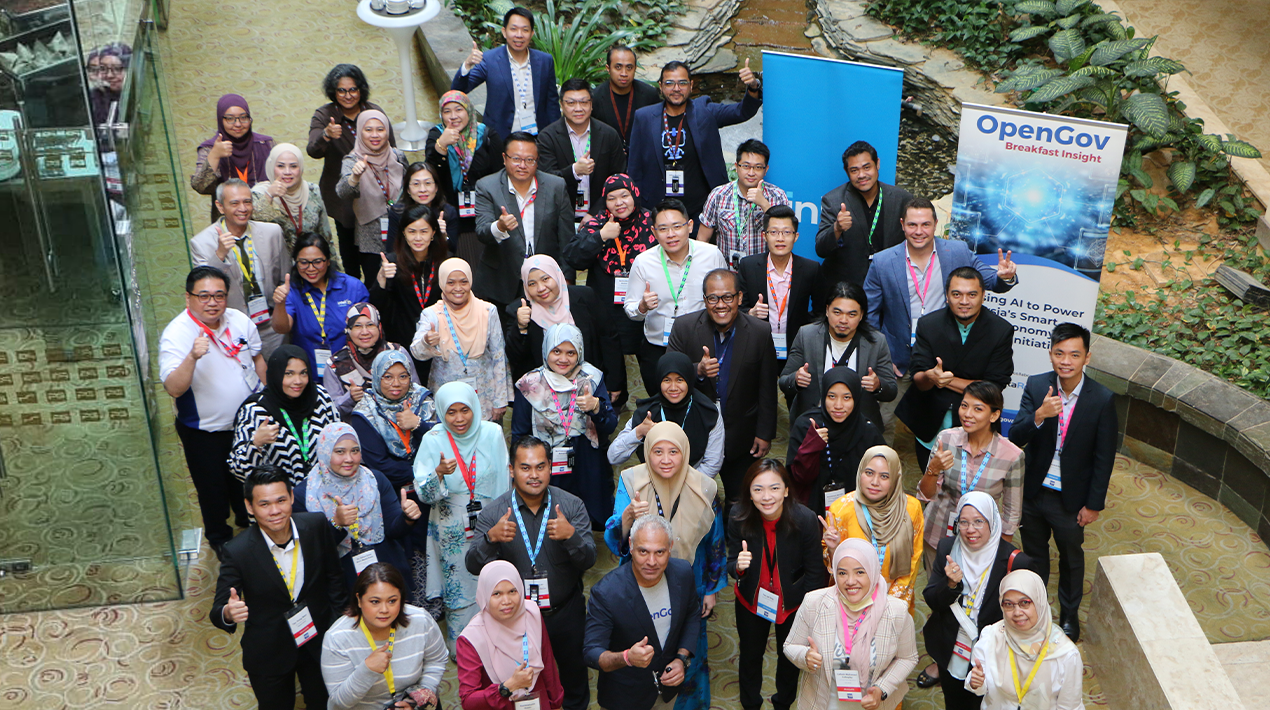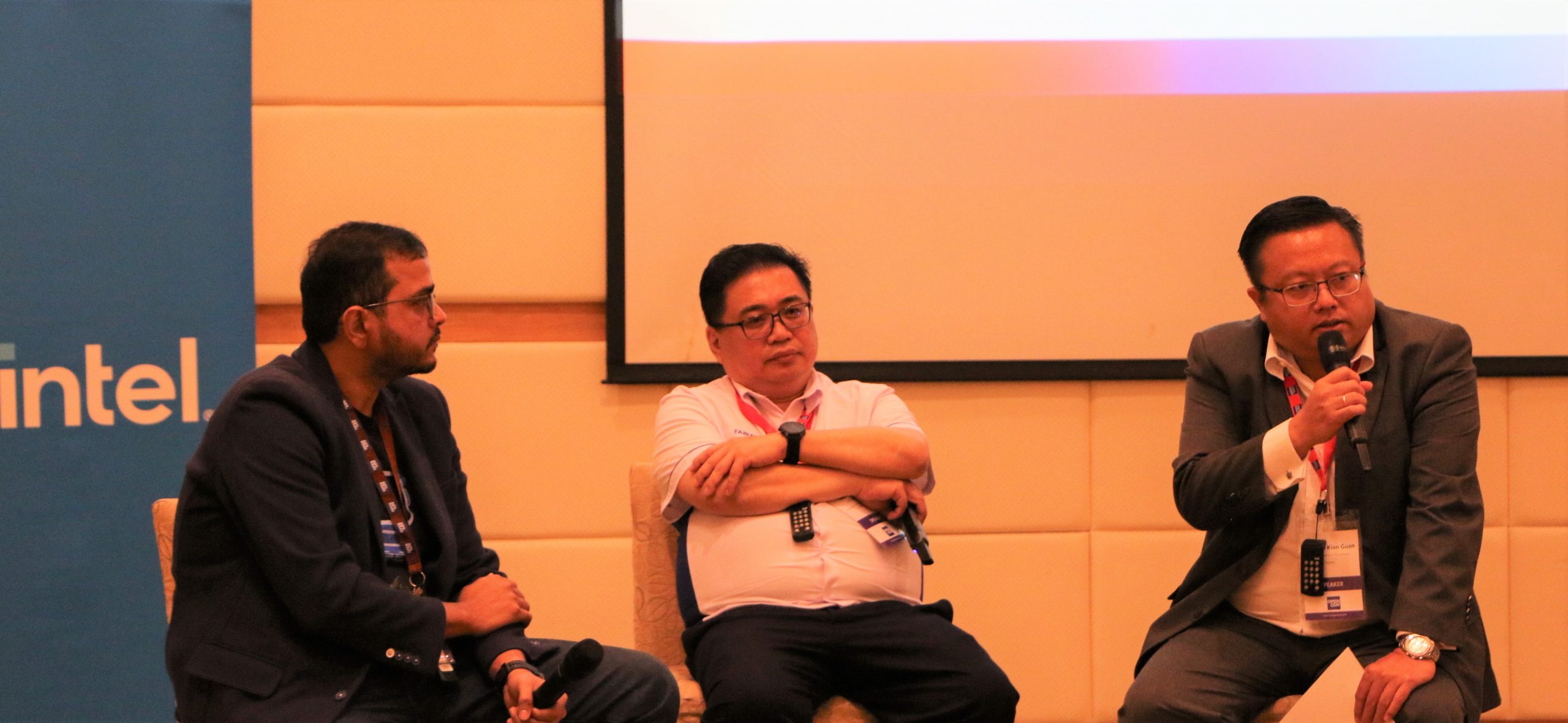
Artificial intelligence (AI) is gaining ground across the public sector and is reflective of a larger trend in governments. In line with this global perspective, the Malaysian government, too, is looking into it to speed up the development of smart cities, smart communities and online payments and financial services.
The nation’s focus on digital enhancement is intended to build greater digital capabilities using 5G technology. The planned smart city framework is included prominently in the newly announced national 4IR policy.
Based on Malaysia’s Smart City Framework under the 12th Malaysia Plan 2021–2025, of which MyDigital is a component, the digitalisation of society and the economy is considered essential to advancing Malaysia’s aims for a smart digital economy.
In addition, the Malaysia Digital Blueprint revealed that over 144 e-payment transactions were made per person in 2019 and 66 per cent of internet users used mobile banking, giving Malaysia’s eCommerce market a value of RM 16 billion.
While financial services companies are already implementing AI, typically only for use in risk management and revenue-generating, governments are exploring its use as well.
The risk and security of digital transactions can be handled and monitored using a combination of data engineering, machine learning and decision intelligence to help governments and financial institutions achieve their goals for a smart digital economy.
When properly applied, AI will be able to increase confidence among governments and financial institutions, foresee future demands, and improve security.
The OpenGov Breakfast Insight on 4 November 2022 held at Pulse Grande Hotel, Putrajaya brought together public sector and financial institution technology leaders in Malaysia to discuss the latest developments in the use of sophisticated AI and machine learning by governments and financial institutions.
Governance and Risk Management for AI’s Potential Impact

Mohit Sagar, CEO & Editor-in-Chief, OpenGov Asia believes that to maximise the benefits of artificial intelligence, businesses must find a method to accelerate their use of the technology while maintaining appropriate AI governance controls.
Identifying possible system risks early in the AI life cycle is critical for organisations. Owners and developers of AI systems will then be able to make informed choices during the trust-building phases of design, development and deployment. Not only is this geared toward building confidence in users but will reduce the amount of redevelopment work later on.
Malaysia has launched its digitisation journey to strengthen its competitiveness in the global economy, emphasising the necessity for the nation to embrace digitalisation to improve its standard of living and prosperity.
Based on the Malaysia Digital Economy Blueprint, in the next decade, AI technology is projected to raise its Gross Domestic Product (GDP) by up to 26%. Digitalisation will also aid in achieving long-term sustainable growth.
It is the government’s goal to use AI to speed up the development of smart cities, digital finance and smart communities, helping the country achieve its goal of becoming a regional leader in the digital economy by 2030.
- Mohit agrees, can be used in Smart Cities through energy tracking, waste management, public transportation, predicting future needs and offering security, among other areas.
Using advanced surveillance tools, like AI-enabled geospatial analysis for targeting, can make work easier and faster. With AI-augmented intelligence, skilled analysts may spend more time comprehending the most actionable data, events and insights that will drive decision-making.
“Having such data will support government agencies and financial organisations in their risk management endeavours.”
The ability of a group to make good use of AI is something that needs to be ensured by an intelligence community. This will bridge the gap between data collecting and decision-making by enhancing decision-makers’ data interpretation skills.
With the ability to quickly analyse vast amounts of network and open-source data, government and financial institutions can detect advanced persistent threats, foresee the presence of malware on the system, identify network threats and aid in the improvement of cyber defences to safeguard intelligence systems and networks.
As with all new developments, there needs to be visibility, openness and integrity. Confidence and trust are built on these tenets.
“AI technology needs to be as transparent as it can be, giving algorithm or model owners in the intelligence community access to the AI’s internal decision-making mechanisms,” Mohit urges. “Each rule has a condition that must be checked at prediction time and an action that must be done if the condition is true.”
In almost every field, Mohit acknowledges, AI is already having a profound impact on the future of humanity. Big data, robotics and the Internet of Things are all examples of developing technologies that have been and will continue to be largely driven by this sector.
Utlimately, with the use of AI, organisations can safeguard the accuracy of their model predictions in real-time and offer both citizens and customers a great experience.
Welcome Address

Aditya Shankar, Regional Director, AI Success, DataRobot, is acutely aware that trust and confidence are gained ad reinforced by positive experiences.
He shared his experience of losing his wallet and having his bank notify him in seconds of probable bank fraudulent activity and suggesting that his wallet had been misplaced. He was amused by his personal experience with the banking system, from which he learned much.
In the banking industry, AI makes banks more efficient, trustworthy, helpful, and understanding. It is enhancing modern banks’ competitiveness in this digital era, Aditya knows. Its expanding influence in the banking sector reduces operational expenses and enhances customer service and process automation.
AI in banking accelerates the digitisation of banking and financial activities from beginning to end. AI applications improve service quality and assist businesses in identifying and combating fake transactions by leveraging the power of data analytics, clever ML algorithms, and secure in-app interfaces.
A great foundational and reflective question for organisation leaders is, “What can we do today that we couldn’t do before?”
Aditya answered, “Today, we have access to systems, platforms and technology that enable us to make significantly more complex, model, and rapid decisions.”
Platforms facilitate all of these by transforming data into information, information into accurate predictions and accurate predictions into accurate decisions. And they do so increasingly automatically through machine learning automation. And where there is automation there is talent.
In this context, Aditya launched DataRobot, a company formed in 2012 to democratise access to artificial intelligence. Today, DataRobot is the leader in the AI Cloud, with a vision to create a unified platform for all users, all data types and all environments to expedite the delivery of AI to production for all organisations.
DataRobot helps enterprises to utilise the transformative power of AI by providing the world’s only AI Cloud platform and an AI-native strategic success team to assist customers in swiftly transforming data into value.
In Conversation with: Bridging Malaysia Digital Blueprint Plan to Enhance AI Implementation to Reduce Risk and Increase Trust

According to Fabian Bigar, Chief Executive Officer, Strategic Change Management Office (MyDIGITAL), the moment has come for Malaysia to establish the groundwork for the country’s transformation towards an advanced digital economy, ensuring that no Malaysian is left behind to ride the digitalisation wave.
Its foundation will entail constructing infrastructure, fostering innovation and establishing an environment in which all residents may contribute to raising living standards, the results of which will be shared by all Malaysians.
The Blueprint for the Digital Economy in Malaysia identifies several significant initiatives and plans to implement them. These are a) Driving digital transformation in the public sector; b) Boosting economic competitiveness through digitalisation; c) Building enabling digital infrastructure; d) Building agile and competent digital talent; e) Creating an inclusive digital society; f) and Building a trusted secure and ethical digital environment.
Everything from social interactions to commercial processes to the provision of public services is becoming increasingly digital today. The scale of the difficulties created by the transition to a digital economy necessitates a concerted national effort to adjust to the new normal and cooperate.
“Together, we must face this digital economy revolution head-on by taking the measures necessary to adapt and collaborate for the new normal,” Fabian is firmly convinced.
Malaysia’s digital journey is not going to be an easy road to travel, but given the circumstances, the nation must be bold enough to take the giant leap ahead to improve the standard of living for all Malaysians.

For Ken Yon Kian Guan, Director, Risk and Compliance PayNet, with new regulations in place, banks must reevaluate their existing compliance procedures and the underlying IT systems, as well as explore a wide variety of risk and compliance-related projects.
Ad hoc methods of compliance management can put banks at serious risk, especially considering the growing compliance complexity brought on by new rules.
Complex banking businesses should have a framework in place for compliance-risk management that allows them to recognise, track and efficiently control the compliance risks that face their whole company due to the nature and levels of risks that are intrinsic to their business operations.
“Compliance risk management has emerged as a significant business concern across the globe,” says Ken Yon. “Once compliance risks have been identified, prioritised and ranked, the correct control can be selected to mitigate or identify the risk.”
The efficiency with which controls function must be considered. Controls with a higher risk profile should undergo a more thorough assessment than those with a lower profile.
One of the most critical tasks that management must address daily is risk mitigation. Everyday company threats can be drastically minimised with the help of modern technology used astutely and effectively. Organisations in a wide variety of sectors work to reduce the danger by creating and implementing an effective strategy and an effective technology solution.
“Risks may be reduced in many ways with the help of technology and the correct technological solution will operate as a guard dog, keeping an eye on things like openness in business processes, efficiency in workflows, and productive use of staff time.”
Furthermore, machine learning (ML) is methodically allowing firms to solve organisational challenges faster and more successfully than ever before in insurance, banking, manufacturing, life sciences, marketing and countless other areas.
“Our objective has always been to provide a system that enables all organisations to automate their data science activities and gain immediate value from their data,” says Aditya.
He understands that organisations want to get deeper, more meaningful data-driven insights without incurring the expensive expenses and time commitments associated with traditional modelling methodologies.
Because of the combination of immense computing power and the unprecedented volume of data collection, every organisation now has the chance to extract value from their data and focus on prospects for growth and business process optimisation.
However, organisations confront major challenges to AI adoption, mostly due to a global workforce shortage of data science knowledge.
DataRobot automates the whole data science and ML workflow, removing the need for organisations to assemble a big staff of data scientists with sophisticated coding skills and complementing the capabilities of those that do have data science teams.
“DataRobot is an enterprise machine-learning platform that enables users of all skill levels to design and deploy ML and AI more quickly,” explains Aditya.
The DataRobot platform, which includes a library of hundreds of the most powerful open-source machine learning algorithms, automates, trains and assesses models in parallel, enabling AI applications at scale. “DataRobot offers the quickest road to AI success for both private and public sectors.”
Closing Remarks

Cheow Siew May, Country Sales Manager, Malaysia, Intel knows that “AI is happening now.” It has grown roots and is sprouting new ideas constantly.
It’s only a matter of time before AI opportunities proliferate because more people use them. But for businesses to be able to do this, they need reliable ways to connect with vendors and AI experts.
Siew May shared that Intel’s goal is to influence technological development for the betterment of humanity. Intel’s work in sectors such as AI, analytics and cloud-to-edge technology lies at the foundation of innumerable advancements.
Intel technology underpins everything from game-changing innovations like self-driving cars and coral reef restoration to enhancing the consumer experience with things like blockbuster special effects and more convenient shopping. “Partnerships with Intel give you the chance to speed up your organisation’s use of game-changing technology that will help shape the world’s future for the better.”
In addition, Intel’s long history of corporate responsibility leadership provides a competitive advantage for its business. Intel and its investors benefit from the integrated approach to corporate responsibility and sustainability by assisting them in mitigating risks, reducing costs, increasing brand value, and identifying new market opportunities.
Creating and maintaining a skillset in an organisation is the hardest task by far, says Mohit. Skills are required to keep an organisation running effectively and to comprehend the internal and external factors that influence an organisation’s success as well as the processes involved in achieving its objectives.
“You’ve got to bring in people who genuinely know what’s going on and can raise the game,” is Mohit’s caveat to progress.
Almost every organisation is being transformed by AI and there is no better moment than the present to adapt to the digital world and be prepared to fully utilise the metaverse to stay ahead of the competition.
Partnerships improve product quality and market penetration by pooling resources, skills, and knowledge. Hence, the ideal collaboration will elevate the spirit of the organisation.
















